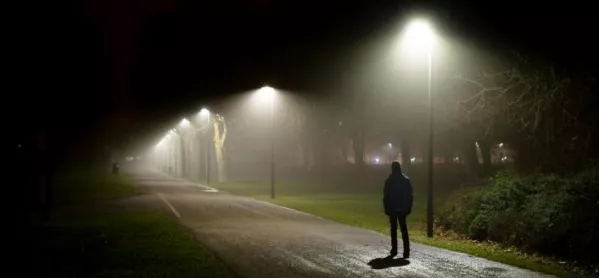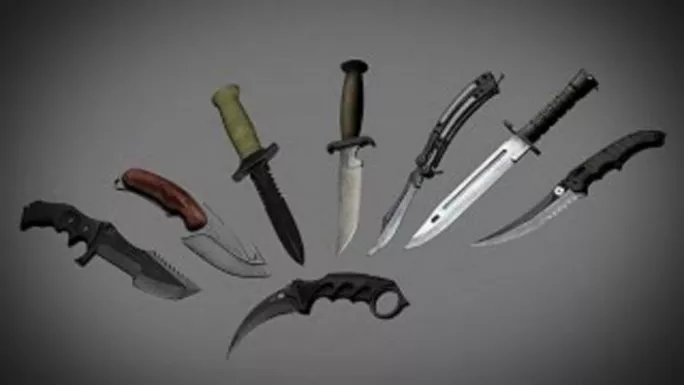
- Home
- Schools must rethink zero-tolerance on knives
Schools must rethink zero-tolerance on knives

When Adam arrived at school on Monday morning, he was hoping to put the events of the weekend behind him. That Saturday morning, he’d been hanging out with a group of older boys who’d befriended him. When it became apparent that the police were nearby, a bag had been thrust into Adam’s hand and, very soon after, he’d been stopped and the bag was searched. It contained a knife.
I know Adam’s father well. He’d received the telephone call that all parents of teenagers dread: your son has been arrested. A grim day at the police station unfolded. It was serious. There would be consequences, a later day in court.
What neither Adam nor his parents had initially appreciated was that the arrest initiated a chain of safeguarding events. The police alerted the local Youth Offending team; they in turn then informed Adam’s school. Adam had just begun Year 11 and hadn’t been in trouble before, but when he walked through the school gates, he was immediately diverted to the head’s office and promptly permanently excluded. Although the knife had never been near the school, the policy was clear: zero tolerance, game over.
Sadly, just a few months later, the son of someone else I know found themselves in the same situation. Adam had been at an independent school in south-east London; Sam was at a local authority comprehensive. He’d been threatened online by some older boys who went to a different school. Terrified about what might happen on his way back from school, he’d foolishly taken in a knife in case he needed to defend himself on streets where teachers couldn’t. It had never come out of his bag, but someone had dobbed him in. No excuses. Gone.
In neither case was a knife seen nor used in school. In both cases it became apparent that Adam and Sam were themselves victims of exploitation: they were vulnerable boys who needed safeguarding. The older “friends” Adam had got to know turned out to be linked to a “county lines” gang, and they were grooming him. Sam was having a tough time at home; his school had been through a period of savage cuts and pastoral systems had almost completely fallen apart. Feeling in danger, he hadn’t known where to turn.
Pressured system ‘taking its toll’
The situation is not an uncommon one. “We know children excluded from mainstream schools are at serious risk of being groomed and exploited by criminal gangs,” reports Javed Khan, chief executive of Barnado’s. The police share his concerns as they witness increases in weapons in and around schools. Mark Burns-Williamson, police and crime commissioner for West Yorkshire and chair of the Serious Violence Taskforce at the Association of Police and Crime Commissioners couldn’t be more clear: “I believe the impact of a disjointed and under-pressure education system is taking its toll.”

What is absolutely clear is that schools cannot - must not - be “soft” on knives. It is absolutely correct that schools do all that they can to keep people safe. However, there is an increasing feeling that the current blanket policy of “zero tolerance” allows schools to wash their hands of a serious problem. Permanent exclusion simply shifts the issue elsewhere, often causing more problems than it solves. Burns-Williamson continues: “Labelling young people and in some cases severing them from a stable learning environment, may only serve to compound the issues, and we must collectively look for potential alternatives that can take account of individual circumstances.”
The absurdity of the current policy was highlighted when the local authority school admitted to Sam’s parents that it had accepted students into the school who had been permanently excluded elsewhere for similar offences. This merry-go-round of excluded children surely has to stop. “Exclusion must be a last resort,” Khan says. “And all children must have access to high-quality full-time education that gives them the best possible chance of achieving good grades, and staying safe from harm.”
Both Adam and Sam accepted that they had made massive mistakes. The Young Offending team saw how Adam had been exploited, and all charges were dropped. Neither boy had been in trouble before, yet they were cast adrift by their schools. With no existing relationships in new institutions, statistics show that they are at greater risk.
From a business perspective, getting rid of students like Adam and Sam makes complete sense: they are tarnishing the brand. But if we see a school as more of a familial structure than a corporation, exclusion is the last thing that they needed, just as the last thing that their respective parents did was banish them from the family home. What they needed was to be embraced, but when you have an eye on league tables and cash-flows, holding on to these children is profoundly difficult and requires wider and deeper conversations about what roles schools should play.
‘Preventing violence is everyone’s business’
Burns-Williamson believes that “the Government must look again at the duties and provisions currently being offered through education, youth services and wider community safety plans.”
Khan concurs. “Preventing serious youth violence,” he says, “is everyone’s business.”
As such, it is surely time for schools to reconsider their approach.
Moving away from zero tolerance cannot then mean “anything goes”, but current policies do not sit well within the multi-agency approach advocated by the police and charities like Barnado’s.
Change is urgently needed, and the courage to make it must show ministers investing in schools and backing them with the resources they need to support the police and others in ridding society of this current scourge of youth violence.
Student names have been changed
Kester Brewin teaches maths in south-east London. While working as a teacher, he has been a consultant for BBC Education, and is the author of a number of books on culture and religion. He tweets @kesterbrewin
Register with Tes and you can read five free articles every month, plus you'll have access to our range of award-winning newsletters.
Keep reading for just £4.90 per month
You've reached your limit of free articles this month. Subscribe for £4.90 per month for three months and get:
- Unlimited access to all Tes magazine content
- Exclusive subscriber-only stories
- Award-winning email newsletters
You've reached your limit of free articles this month. Subscribe for £4.90 per month for three months and get:
- Unlimited access to all Tes magazine content
- Exclusive subscriber-only stories
- Award-winning email newsletters



